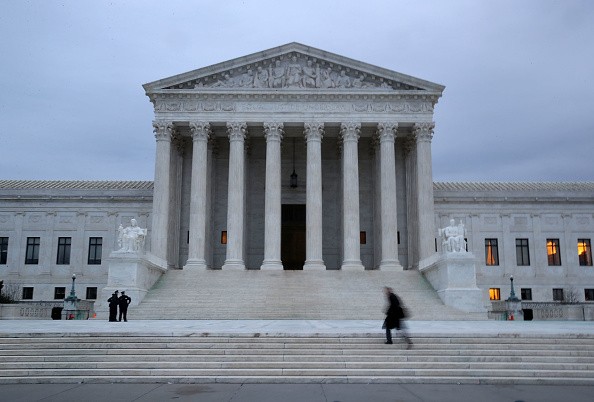Supreme Court Refuses to Take Up GOP Challenge in Pennsylvania Mail Voting

The Supreme Court refused on Tuesday a GOP request to overturn election results in Pennsylvania despite allegations that the expansion of mail voting in the state was illegal.
According to Fox News, the Supreme Court left intact a decision from the Pennsylvania high court which tossed a lawsuit challenging a 2019 law to expand the state's mail voting system.
U.S. Supreme Court Associated Justice Samuel Alito was referred the Pennsylvania challenge, and he later referred the case to the full court.
USA Today said in its report that the Supreme Court gave the mail voting challenge a "one-sentence denial."
"The application for injunctive relief presented to Justice Alito and by him referred to the Court is denied," the order said.
Even newly appointed Justice Amy Coney Barrett also participated in the unanimous decision. There were no dissents or recusals made to the case, despite three of the current justices being Trump appointees.
As Daily Wire pointed out, since the Supreme Court denied this request, Pennsylvania could be granting its 20 electoral votes Democratic presidential nominee Joe Biden.
Read also: Biden Picks Former Iraq Commander Lloyd Austin to Be First African American Defense Secretary
With the denial, this Pennsylvania decision joined other judicial opinions that left the Trump campaign both politically and legally defeated.
Pennsylvania Challenge Alleges Universal Mail Voting Unconstitutional
The Pennsylvania lawsuit filed by Republican Rep. Mike Kelly sought to toss all of the state's mail-in ballots on the grounds that "universal, no-excuses" mail-in voting was unconstitutional.
"Pennsylvania's General Assembly exceeded its powers by unconstitutionally allowing no-excuse absentee voting, including for federal offices, in the election," the legal challenge read.
Kelly alleged that constitutional amendment was first needed to authorize such provisions during the election.
The specific piece of legislation argued by the Trump campaign was Act 77, which allegedly violated the state's constitution.
The no-excuse mail-in voting system was passed with bipartisan support last year.
If the courts has sided with Kelly, more than 2.5 million mail-in ballots would have been tossed, which could secure a victory for President Donald Trump in Pennsylvania.
Alito previously ordered the Pennsylvania lawyers to respond to Kelly's suit by December 9, which is the day when Congress cannot challenge any electors already named in accordance with state law.
The case was moved up by 24 hours and said state officials had to respond by 9 a.m. on Tuesday, reported the Philadelphia Inquirer.
More Legal Challenges for Pennsylvania Still in Courts
The Trump campaign still has more lawsuits pending in several key states, including Pennsylvania.
Last month, a federal appeals court last month rejected unsupported claims that ballots were improperly processed in the state and that the election was fraudulent. But so far, judges have turned down all of their arguments.
Another lawsuit involving the state was filed by Texas Attorney General Ken Paxton on Monday.
Paxton sent a lawsuit to the Supreme Court asking it to stop the certification of votes in Georgia, Michigan, Pennsylvania and Wisconsin when the Electoral College meets Monday to formally select the president-elect.
Paxton said that the four states used the coronavirus pandemic as an excuse to make unconstitutional changes to their voting rules.
Subscribe to Latin Post!
Sign up for our free newsletter for the Latest coverage!

















